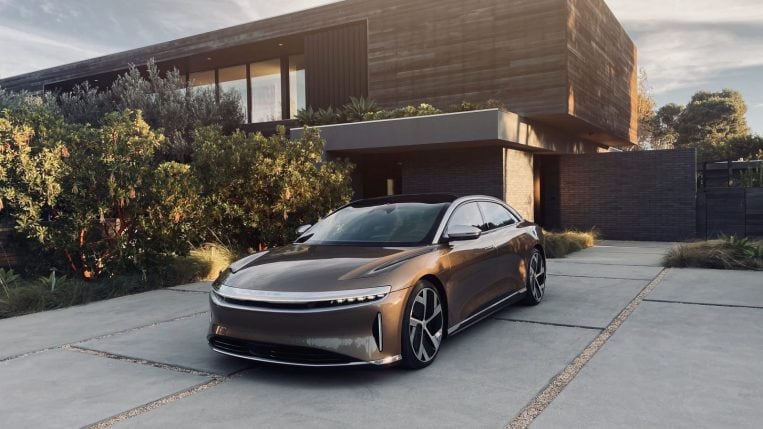
Get to know the fastest-charging electric cars. Electric vehicles are fast becoming mainstream, but it’s still the wild west when comparing them to one another.
Two years ago, fewer than ten electric vehicle models were for sale in the United States. Infrastructure held them back – there were few places to charge and buyers legitimately worried about running out of juice far from the nearest location to recharge.
Those infrastructure challenges are fading. You can now easily find fast chargers outside shopping centers and offices in many metropolitan areas, and networks of chargers are about to start spreading along interstates as electric companies realize there’s money in it for them.
If you should find yourself in need of a charge far from chargers, you’ll soon be able to order a remote charger delivered to your location with a few clicks on your phone. There will even be robots charging cars in parking garages.
With the infrastructure growing, automakers are racing to produce more electric cars. By the end of 2021, there will be more than 100 models on the market.
There may also be 100 ways to calculate how long electric cars take to charge.
We set out to find the five fastest-charging electric cars and quickly found that we’d waded into a chaotic question without a simple answer.
How You Charge is Everything
All gas pumps are roughly similar. But the same can’t be said for chargers.
Every electric car sold in the U.S. today comes with a Level 1 charger – not much more than an extension cord you can plug into a standard 110-volt outlet. It’s not unusual for an electric car to take all night to get to a full charge that way.
But, functionally, that’s fine for most drivers on an average day. You probably rarely drive longer distances in a day than the average electric car range. Most of us settle down for the night somewhere where we could plug it in. Think of this as filling a swimming pool with a water gun.
Many buyers, though, will want to step up to a Level 2 charger. Usually installed by an electrician (though we know of one you can install yourself), these use a 240-volt outlet like an electric dryer. They usually cut that charging time more than in half. For our swimming pool analogy, a Level 2 charger is a garden hose.
Finally, there are Level 3 chargers out and about, like Tesla’s Supercharger stations or the universal charging stations Electrify America has built into some gas stations and shopping malls. These use DC current – up to 350 kWh if your car can take it – and will charge an electric car far faster than anything you can do at home. It’s like calling the fire department to fill your pool directly from an open hydrant.
However, not every electric car can accept power at that rate. Electric cars manage how much power they will draw from a charger. They throttle back what they receive from the most powerful Level 3 chargers to prevent damage to their components.
Electric cars also don’t charge at a constant rate. Testers often find that the first few percent of charge enters the battery quickly, and the last few percent can take much longer.
Battery Size is an Issue
Even if two electric cars can accept the same power flow, that doesn’t mean they’ll finish charging simultaneously. Electric vehicles offer different size batteries. Sometimes different trim levels of identical electric cars carry different size batteries. The Tesla Model S on the road today, for instance, has been sold with battery packs measuring 60, 70, 75, 85, 90, and 100 kWh.
In other words, sometimes you’re filling a kiddie pool, and sometimes an Olympic-size lap pool.
Manufacturer’s Claims: No One Fact Checks Them
A government agency verifies fuel economy for gasoline-powered cars. Another will check that fuel pumps are dispensing an actual gallon for every gallon for which they charge. But charging times? Manufacturers can claim whatever they’d like. No one is verifying what they say.
And they all say something different.
Some manufacturers report the amount of time an electric car takes to charge from an empty battery to 100 percent. Others say time to 80 percent. At the same time, others report time from 10 percent to 80 percent. And virtually all report their numbers in a best-case-scenario, using a Level 3 charger that buyers may not be able to access.
No one checks these claims.
Technology is Changing Rapidly
Finally, charging speed calculations are tricky because they don’t last. Battery technology is one of the hottest research fields on the planet today. The company that creates better batteries will improve electric vehicles and enable power grids to store solar electricity for use overnight, build phones that can run on reserve power for days, and even make human missions to Mars easier.
Consequently, there are new and improved batteries rolling out regularly. Automakers know this and sometimes change their configuration on the fly (Tesla, for instance, builds more efficient batteries into its cars regularly, never waiting for the next model year to improve what they’re offering).
Thus, any calculation involving the cars currently on the market is subject to change at any moment. Perhaps even dramatic change — Toyota, reports say, may unveil a solid-state battery with a 600-mile range any day now.
5 of the Fastest-Charging Electric Cars
So, how should we compare electric car charging times? Given the wide disparity of data available, we have to pick one flawed measurement over another and accept that we’re using unverified manufacturer data. With that in mind, we’ve calculated how fast each electric car’s battery can charge under peak conditions.
1. Lucid Air – 20 miles per minute
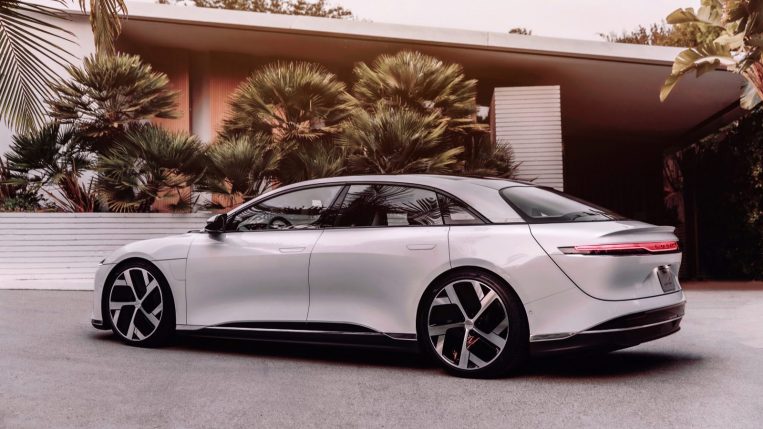
We’re cheating slightly here. The Lucid Air isn’t exactly on the market yet. You can reserve one, but it’s still unknown when (or, for that matter, if) they will reach buyers. With a starting price of $77,400, the Air claims a range of 517 miles and a record charging rate of 20 miles per minute.
We’ll believe it when we see it, but we’d be remiss not to report that this is the most extreme claim a manufacturer has made yet.
2. Porsche Taycan – 15.5 miles per minute

Porsche’s Taycan Model-S-fighter is capable of a quick surge of charging that will, the manufacturer says, give you 62 miles of range in just four minutes. It won’t charge at that rate indefinitely, but should you find your battery running low, the ability to get another hour’s worth of highway-speed driving in the time it takes to order a cup of coffee is nice.
3. Tesla Model 3 – 15 miles per minute
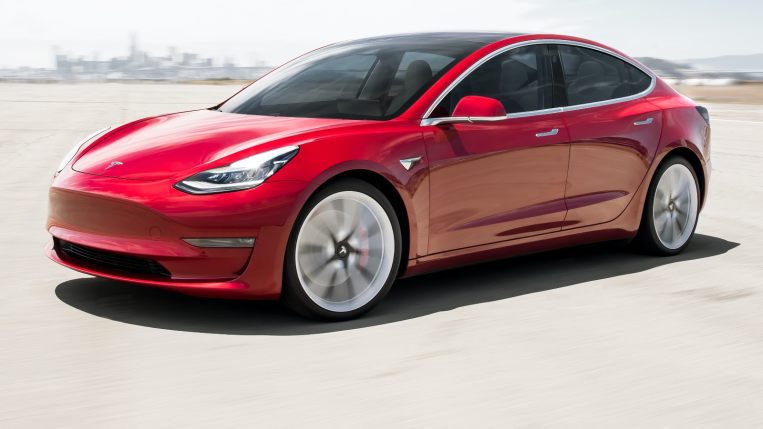
The best-selling electric car in America is also capable of a rapid charge to 80 percent of its battery capacity. The Model 3 holds the Guinness World Record for the fastest charge – three drivers crossed the United Kingdom in a Model 3, stopping just three times to recharge for about half an hour each time.
4. Tesla Model S – 13.3 miles per minute
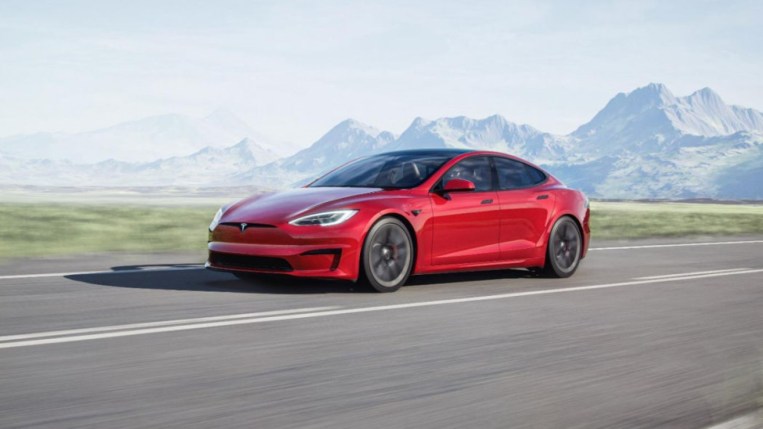
Estimating the charging time of a Model S is challenging because Tesla is constantly improving the vehicle. In the past, the company has even sent out over-the-air software updates that sped up charging time for all Model S owners, enhancing the numbers of years-old cars. The latest Model S Plaid Plus, the company says, can charge an additional 200 miles of range in about 15 minutes of DC fast charging.
5. Nissan Leaf – 12.5 miles per minute
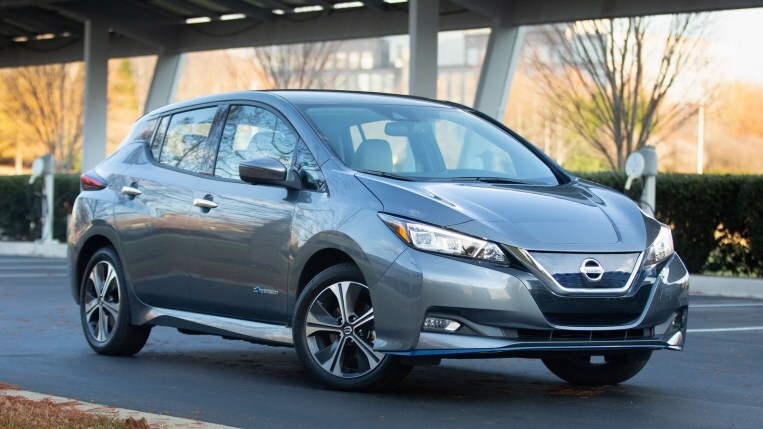
Most of the cars on this list are luxurious, sports-car-fast electric vehicles with price tags over $70,000. But the humble Nissan Leaf can nearly keep up with them when it comes to charging.
Thanks to its relatively light weight, the Leaf gets more range out of a smaller battery, keeping it in competition with much pricier electric vehicles.
Methodology: The above calculations use “miles per minute” to measure the maximum mileage each vehicle can accept in 1 minute from a Level 3 fast charger.
These cars will not charge at a constant rate, and each has a battery of a different size, so miles per minute will not tell you how long each vehicle takes to reach full charge. But miles per minute makes a helpful shorthand to help show what you’d be getting into if you were to buy any of these cars.
Related Electric Car Stories:
"electric" - Google News
March 15, 2021 at 08:00PM
https://ift.tt/3tmJs7C
5 Fastest-Charging Electric Cars - Kelley Blue Book
"electric" - Google News
https://ift.tt/2yk35WT
https://ift.tt/2YsSbsy
Bagikan Berita Ini














0 Response to "5 Fastest-Charging Electric Cars - Kelley Blue Book"
Post a Comment